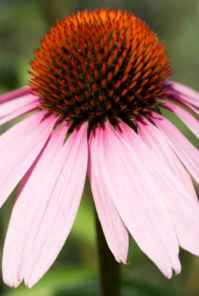
Evaluating Acupuncture For Acne, Psoriasis and AllergiesCan acupuncture for acne, psoriasis and allergies really make a difference to these conditions? It all depends on your point of view. Ask a physician trained in traditional Chinese medicine how acupuncture works and he/she will tell you about restoring harmony of energy flows in the body by stimulating specific points on the skin with very fine needles. Ask any physician who has been trained in traditional Western medicine how acupuncture works, and he/she will say that no one knows for sure. Ask most acupuncturists about using acupuncture for acne, psoriasis, or allergies, and the answer will be yes. Ask the same question of the Western medicine-trained physician, and he/she will say there is no conclusive evidence that acupuncture can successfully treat these diseases. Western medicine and traditional Chinese medicine differ greatly in their ideas about the origins of disease, the best way to treat disease, and how to evaluate the effectiveness of treatments.
The acupuncturist says that the allergy represents a disruption of energy flow in the body, a disharmony. Both believe they are right, but for different reasons. Western medicine points to large numbers of controlled experiments with carefully manipulated variables that produce predictable results as proof of their approach. Chinese medicine points to the large number of patients who find relief from their asthma with acupuncture. Experiments are not needed, they might say; the proof is right there in front of your eyes. Who is right? The scientific approach or the personal and experiential? If it comes to a choice, there is no 'right' answer. The scientist would say - correctly - that there is very little information about treating allergies with acupuncture and what data is available is of very poor quality. The acupuncturist would say - correctly - that there is a lot of experience in treating allergies with acupuncture. Each approach has its own logic and if accepted, the conclusions are clear and you will believe one or the other. It's a difference in opinion that is not easy to reconcile, and the controversy has involved many illnesses and pathologies. Acne is a skin condition that affects millions of people. Western medicine says that the etiology is not known. Treatments should be based on possible causes and evaluated by traditional scientific experiments. Success (which is unpredictable) is determined using statistical measures. Traditional Chinese medicine says acne is caused by a disharmony of energy flow and treats acne by stimulating points on the ear that are said to dispel heat, wind, damp, and cool blood. Acupuncturists claim great success in treating acne, and indeed there are a lot of success stories - published in the acupuncture journals. However, by Western standards, these case reports are not convincing. The number of patients is too small, the experiments are poorly designed and controlled and there is little to no long-term follow up. Psoriasis is another example of this 'clash of cultures.' Psoriasis is an autoimmune skin disease that is characterized by patchy, irritating reddened areas on the skin (an autoimmune disease is a disease in which the immune system actually attacks and damages the body). An acupuncture treatment for psoriasis would involve needle placement in the ears and various locations on the body. Reports in journals such as the Journal of Chinese Medicine claim success using acupuncture as a treatment for psoriasis, but the traditional Western scientific literature does not support the use of acupuncture as a treatment for psoriasis; there is only one published study in the 'traditional' scientific literature about psoriasis and acupuncture and in that case, it was not effective. What is the answer? Some controlled studies of acupuncture for acne, psoriasis, and allergies report successes, some do not, but the quality of the studies has not been high. At this point, the literature doesn't prove or disprove the effectiveness of acupuncture for acne, psoriasis, and allergies, and there is a strong suspicion that acupuncture, when it is effective, depends on the placebo effect. Nonetheless, millions of people use acupuncture and vigorously attest that it works - for them. And millions of scientists say that from a scientific standpoint, there is no proof it works. One approach requires faith and belief the other asks for measurable, reproducible results. Are you a skeptic or a believer? Of course, if you don't like needles and still want to take advantage of the skill in traditional Chinese medicine, of which acupuncture is a part, then check out this alternative to acupuncture for acne. It's pretty effective, as the unsolicited testimonials show,
|
Acne Home | Natural Treatments | Acupuncture For Acne, Psoriasis and Allergies
Acne Home Natural Treatments Acne Scars Acne Products Acne Tips Teen Acne Acne Nutrition Adult Acne Acne Medicine Acne Treatments Rosacea |
(C) By Rebecca Prescott, 2005 - 2008.
 For example, allergy is a very common disorder. Traditional Western medicine explains allergy by saying that foreign particles (e.g., drugs, foods, pet dander, etc) stimulate a reaction (inflammation) by the body that is an attempt to neutralize and remove them, but the response is excessive and the signs and symptoms uncomfortable.
For example, allergy is a very common disorder. Traditional Western medicine explains allergy by saying that foreign particles (e.g., drugs, foods, pet dander, etc) stimulate a reaction (inflammation) by the body that is an attempt to neutralize and remove them, but the response is excessive and the signs and symptoms uncomfortable.


